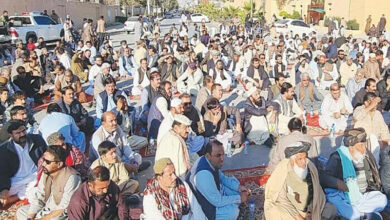Economic Expert Kaisar Bengali Criticizes Government’s Handling of Financial Issues

Karachi: Renowned economist Kaisar Bengali has criticized the government’s approach to managing financial deficits, asserting that the closure of certain government institutions could have saved up to 30 billion rupees. Speaking at a press conference in Karachi, Bengali emphasized that the government’s top priority should be controlling financial losses.
Bengali, who recently resigned from the High-Powered Committee for Rightsizing, claimed that the burden of organizational restructuring is disproportionately falling on lower-income segments of society. He criticized the committee’s approach, which involved recommending decisions on a rolling basis for five divisions at a time, and suggested that heads of institutions under each division be interviewed.
Bengali highlighted that despite having three population-related institutions, the issue of population control remains unaddressed. He also pointed out the existence of Pakistan Gems and Jewelry Company and Pakistan Gems and Jewelers Authority, arguing that instead of closing these institutions, they were suggested to be placed under the Ministry of Petroleum, a move he finds perplexing.
The economist expressed frustration over the government’s apparent lack of interest in reducing expenses, noting that the committee only recommended closing one out of 70 identified public institutions. The committee’s recommendations included privatizing 17 commercial entities while retaining 52 government institutions.
Bengali also challenged the committee’s recommendations regarding the elimination of 150,000 positions from grade 1 to 16 and the privatization of Utility Stores Corporation. In his detailed report, he had suggested closing 17 divisions and 50 public institutions, arguing that 17 of these divisions are unconstitutional and should be dissolved.
He criticized the current committee, which he described as non-technical and politically motivated, suggesting that decisions are pre-determined by political figures. Bengali pointed out the inefficacy of Smeda, an organization established 40 years ago with no noticeable impact, and argued that high interest rates and utility bills are stifling industrial growth.
Bengali concluded that the country is on the brink of bankruptcy and urged the government to prioritize expenditure reductions. He announced that he would submit his income tax return a day late on September 20 as a form of protest.






